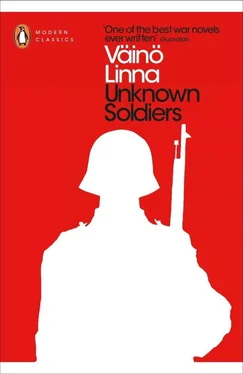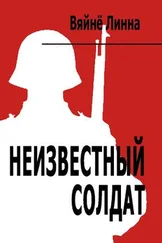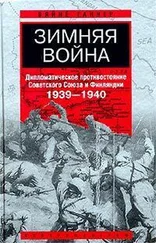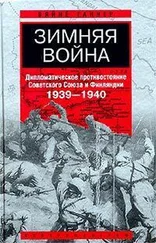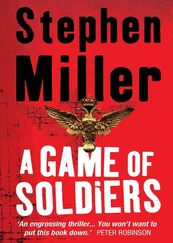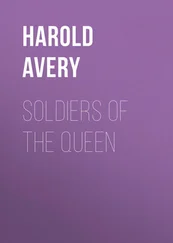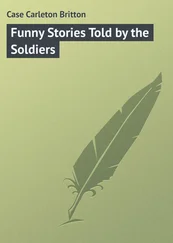Вяйнё Линна - Unknown Soldiers
Здесь есть возможность читать онлайн «Вяйнё Линна - Unknown Soldiers» весь текст электронной книги совершенно бесплатно (целиком полную версию без сокращений). В некоторых случаях можно слушать аудио, скачать через торрент в формате fb2 и присутствует краткое содержание. Город: London, Год выпуска: 2015, ISBN: 2015, Издательство: Penguin Books, Жанр: Классическая проза, Историческая проза, prose_military, на английском языке. Описание произведения, (предисловие) а так же отзывы посетителей доступны на портале библиотеки ЛибКат.
- Название:Unknown Soldiers
- Автор:
- Издательство:Penguin Books
- Жанр:
- Год:2015
- Город:London
- ISBN:978-0-141-97705-8
- Рейтинг книги:5 / 5. Голосов: 1
-
Избранное:Добавить в избранное
- Отзывы:
-
Ваша оценка:
- 100
- 1
- 2
- 3
- 4
- 5
Unknown Soldiers: краткое содержание, описание и аннотация
Предлагаем к чтению аннотацию, описание, краткое содержание или предисловие (зависит от того, что написал сам автор книги «Unknown Soldiers»). Если вы не нашли необходимую информацию о книге — напишите в комментариях, мы постараемся отыскать её.
‘A rediscovered classic… profound and enriching… Unknown Soldiers still has the power to shock’ Herald
‘One of the best war novels ever written’ Guardian About the Author
Unknown Soldiers — читать онлайн бесплатно полную книгу (весь текст) целиком
Ниже представлен текст книги, разбитый по страницам. Система сохранения места последней прочитанной страницы, позволяет с удобством читать онлайн бесплатно книгу «Unknown Soldiers», без необходимости каждый раз заново искать на чём Вы остановились. Поставьте закладку, и сможете в любой момент перейти на страницу, на которой закончили чтение.
Интервал:
Закладка:
I italicized the two attempted quotations from Runeberg’s Tales of Ensign Stål in Chapter Three (pp. 88–9, 102), though, as Hietanen remembers both sections from Paavo Cajander’s Finnish translation a bit erroneously, I improvised verse versions of his Finnish rather than quoting Clement Burbank Shaw’s translations from the Swedish. [2]Similarly, I tried to indicate, through English meter and rhyme, the versified origins of Ensign Jalovaara’s closing lines, which recall Eino Leino’s Finnish translation of Heinrich Heine’s ‘Die Grenadiere’ [‘The Two Grenadiers’]: ‘We heard… they let us know… that Finland’s dead… her tombs already deep beneath the snow…’ (p. 466). Because Jalovaara’s invocation of the lines relies so heavily upon the particular structure of Leino’s translation, adapting a published English translation of the Heine seemed wide of the mark. [3]Songs quoted in the text, like the poems, I have kept in verse measured to the tunes in question, and I have italicized or inset all sung lines to indicate their status as quotations. Though these lines are pulled from some of the best-known songs in Finland, I was unable to locate English verse translations for any of them, and so must answer for all such lyrics myself.
I am also responsible for all the speech patterns of the characters, which the reader will have noticed are often quite marked. In the Finnish text, the characters’ speech is rendered in more or less phonetic orthography, corresponding to regional variants of Finnish pronunciation. Evoking the tribal stereotypes of centuries, the Finnish dialects contribute to the creation of immediately identifiable characters, whose distinctive voices allow the author to omit such cumbersome attributions as ‘said Rokka’ or ‘said Hietanen’. The pronounced presence of the dialects also reflects the particular historical circumstance of the Continuation War in Finland, during which platoons were geographically integrated (during the earlier Winter War, they had been organized by hometown, as we glimpse through Rokka and Susling). Finally, and perhaps most significantly, the dialects in the book carve out a particular socio-political position in relation to the verbal class distinctions of wartime Finland, as well as to the politics of the war itself.
Because the dialects function in so many different ways at different moments in the text – asserting class, authority, defiance, belonging, comedic intent – I felt that it would have been impossible, or at least irresponsible, to translate them in a single, formally systematic way. To substitute English dialects for Finnish ones would have been to reduce the many functions of a character’s dialectical speech into a flat, totalizing equivalence on the basis of one aspect like class, and it would also have created jarring confusions of geographical and national identity. So, stripped of the Finnish dialects, I developed an array of compensatory maneuvers, which I will endeavor to outline here.
The identificatory burden carried by the dialects in the Finnish was transferred onto a number of pronounced idiolects: particularly distinctive, individual voices crafted partly through speech patterns, rhythm and word choice, but also partly through systematic misspellings. Hence Hietanen’s signature ‘pre-tty strange’, Salo’s ‘purty good’, Rokka’s ‘Lissen!’ and so on. The stand-off between Riitaoja’s vulnerable dialectical Finnish and Lehto’s cold, impersonal standard Finnish was transposed into Riitaoja’s stutter on the word-initial /k/ and Lehto’s mockery of it. The Savo dialect posed a particular challenge because it appears explicitly in the text three times, in association with three different individuals: the Master Sergeant on the motorbike leading the truck transport (p. 35), Corporal Mielonen (p. 175), and finally Vanhala – who is not actually from Savo, but affects the dialect for comedic effect (pp. 307–8). Though the comedy (and distinction) of the Savo accent lies, to my ear, primarily in its prosody, marked prosody is a difficult thing to convey in the space of a line, so after much experimenting with risible effects in English, I finally went with the word-initial rolled /r/, transcribed rrr , which, like the Savo prosody, lies just far enough beyond the limits of the standard language to be striking. And it was precisely because the rolled /r/ does not fall within the limits of the English language that I transposed Lieutenant Colonel Karjula’s speech impediment – in Finnish, an inability to roll his /r/s – into an English lisp, or inability to pronounce the letter /s/.
One character’s dialect did compel anomalous treatment in the English, and that character is, of course, Antero Rokka. Even within the world of the text, Rokka’s dialect borders on incomprehensibility (recall the failed communication with the neighboring guard in the trench on p. 347), and it has only become more incomprehensible with time, having died out with the generation of Finns that saw the Karelian Isthmus ceded to the Soviet Union in 1944. Nevertheless, Rokka’s voice is still unmistakably sharp, lively and irreverent – and charged, precisely because of its lost place of origin. To create such a voice in English was obviously an impossible task, but just as inconceivable was the prospect of letting it fall flat. So, I fashioned an Antero Rokka in English, calling upon the sharpest, cleverest, mythically proportioned voices in my memory. If Rokka’s dialect sounds American, which of course it does, that is because the voices in my memory do, too. I could not really have written him any other way.
Finally, the ‘vicious verbal volley’ between Lammio’s stilted, standard Finnish and Rokka’s rapid-fire Karelian chatter was mostly transposed into a difference of register, though the textual reference of Lammio’s ‘pretentiously crossed ‘‘t’’s’ on p. 71(known to the specialist as aspirated /t/s, roughly equivalent to Finnish /d/s) did prompt me to drop several ‘t’s from Rokka’s speech (‘listen’ became ‘lissen’; ‘winter’ ‘winner’, etc.). That these dropped ‘t’s resulted in the transformation of ‘Winter War’ into the comical commentary ‘Winner War’ (which, as we know, ‘both sides won’) was sheer luck.
The aspect of the dialects that proved most elusive was not their class hierarchies, which could be transposed into register and non-standard spelling with a little work, nor their geographical specificity, which is stated explicitly in the text. Even the dialects’ identificatory function could be carried by idiolect and orthography. The elusive element, in the end, was the particular distrust of the written word that Unknown Soldiers paradoxically enacts. For the Finnish dialects, in their phonetic transcription, exercise a peculiar effect on Finnish readers, and one that is not quite replicable in English. Calling upon a powerful Finnish metaphor by which phonetic spelling is equated with equality of access, transparency of representation, and even democracy, phonetic spellings in Finnish stage an unequivocal claim to truth. Pitted against the newly standardized, written Finnish of the nascent state, the phonetically transcribed dialects in Linna’s book lay bare the artifice of that state’s ‘paper language’, calling into question the entire national project and undercutting its proud wartime propaganda. (It is perhaps worth mentioning, for those rusty on their Finnish history, that when the Second World War broke out, the Finnish tongue as a written language was scarcely a century old, and the Finnish state, not yet a quarter-century.)
Unknown Soldiers is a national classic if ever there was one, but it is a national classic that rejects a single, national language in favor of a multiplicity of idioms. I am not entirely certain that the translation succeeds in embodying that profound act. In searching for ways of making the English language perform such a feat, I have to admit that I came up short, contenting myself with the most minute of gestures scattered throughout the text.
Читать дальшеИнтервал:
Закладка:
Похожие книги на «Unknown Soldiers»
Представляем Вашему вниманию похожие книги на «Unknown Soldiers» списком для выбора. Мы отобрали схожую по названию и смыслу литературу в надежде предоставить читателям больше вариантов отыскать новые, интересные, ещё непрочитанные произведения.
Обсуждение, отзывы о книге «Unknown Soldiers» и просто собственные мнения читателей. Оставьте ваши комментарии, напишите, что Вы думаете о произведении, его смысле или главных героях. Укажите что конкретно понравилось, а что нет, и почему Вы так считаете.
